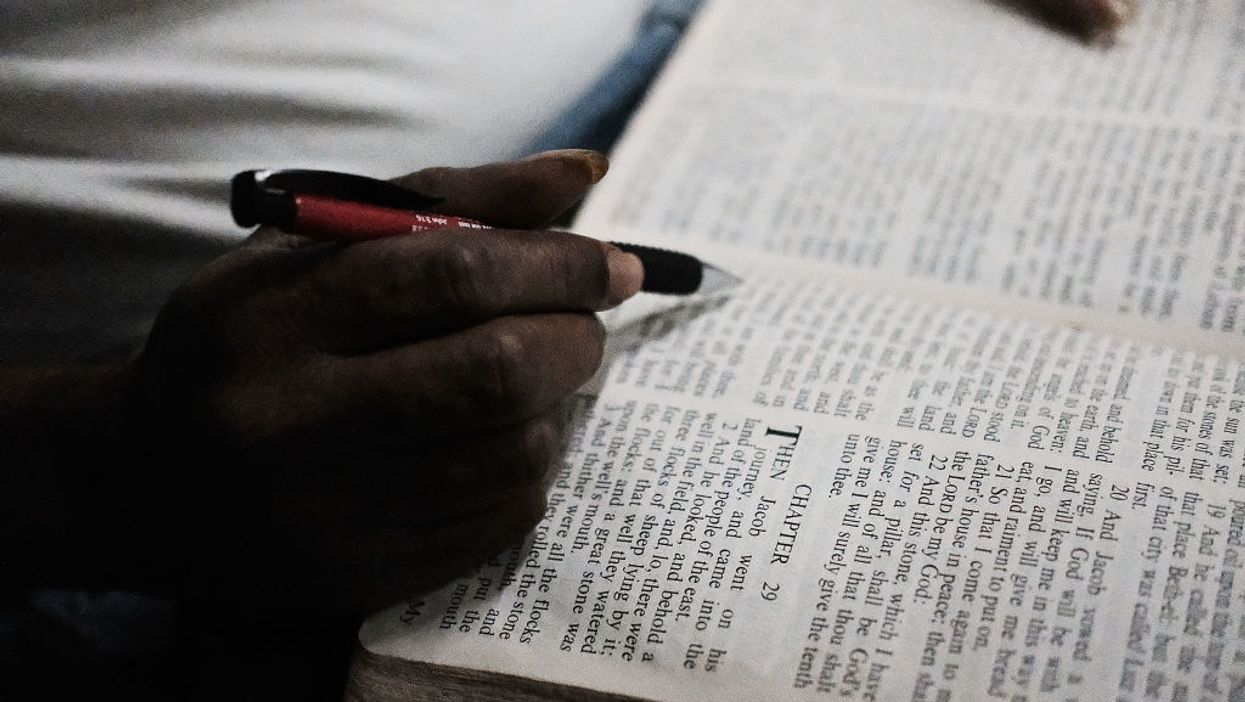
Photo by Spencer Platt/Getty Images

Not even remotely correct
A Rutgers University-New Brunswick professor told a student that he should not quote Bible verses in essays because of the "separation of church and state," Campus Reform reported.
The professor also added that the Bible "may not be for everyone" and its use in academic papers may be offensive to some, including "a Muslim or Jewish person."
The student, Peter Cordi, cited a Bible verse while writing about a friend who struggles with his homosexual identity in an autobiographical paper assigned to him in his "Intro to Gender, Race, and Sexuality" class last semester.
In the paper, Cordi discussed his friend's relationship with his mother, who allegedly uses her Christian beliefs to justify a certain opinion about those in the LGBT community.
Cordi, himself a Christian, but one who disagrees with his friend's mother's views, quoted the popular Bible verse John 3:16 to support his position. The verse says, "For God so loved the world, that he gave his only Son, that whoever believes in him should not perish but have eternal life."
When Cordi received his graded paper, he noticed the professor, Kathe Sandler, had included a comment on his Bible citation.
"Avoid quoting scripture in academic papers unless you are commenting on scripture," Sandler wrote.
Confused by the comment, Cordi decided to reach out to Sandler over email requesting further explanation. Sandler agreed to meet in person.
Campus Reform reported that, according to a recording of the conversation, at the meeting, Sandler is heard "elaborating on her written remarks by reminding Cordi of 'separation of church and state' and that the Bible 'may not be for everyone.'"
The outlet noted that Cordi asked the professor if she was offended by the use of scripture. She replied, "I think for instance this wouldn't work for a Muslim or Jewish person."
Other students at Rutgers University were also uncomfortable with professor Sandler's remarks.
"Students at any institution should be encouraged to research and utilize any sources that they deem relevant to the topic at hand. Many universities within the United States have accepted a dangerous and narrow-minded rhetoric, such as prohibiting Bible scripture, which often leads to a biased and one-sided culture," one student told Campus Reform.
"A person should be able to quote whatever he pleases, either for or against his argument. [The] Bible would be an excellent source of quotes as many people are well versed with the scripture, and feel deeply connected to the words of the Bible," another added, himself an atheist.
Cordi said that his right to free speech and religion has been violated. He also agued that the separation of church and state has nothing to do with quoting the Bible in an academic paper, saying it "is supposed to protect the church from the state."
However, during the meeting, Sandler allegedly insisted that quoting the Bible was not necessary, asking, "Do you need the scriptures? Do you really need the scripture?"
Sandler did at least admit her view was a "personal opinion," though her lack of understanding of the separation of church and state is not what most people expect from a university professor.
In a 2018 op-ed for Time, Sen. James Lankford (R-Okla.) and Russell Moore, president of the Southern Baptist Convention Ethics and Religious Liberty Commission, offered a helpful explainer on the separation of church and state.
In the op-ed, they note that Thomas Jefferson's famous phrase came in an 1802 letter to the Danbury Baptist Association in Connecticut and was meant to reassure them that the state could not infringe upon their right to free exercise of religion.
"'Congress shall make no law respecting an establishment of religion, or prohibiting the free exercise thereof…' "This, [Jefferson] said, built a 'wall of separation of church and state,'" the op-ed said.